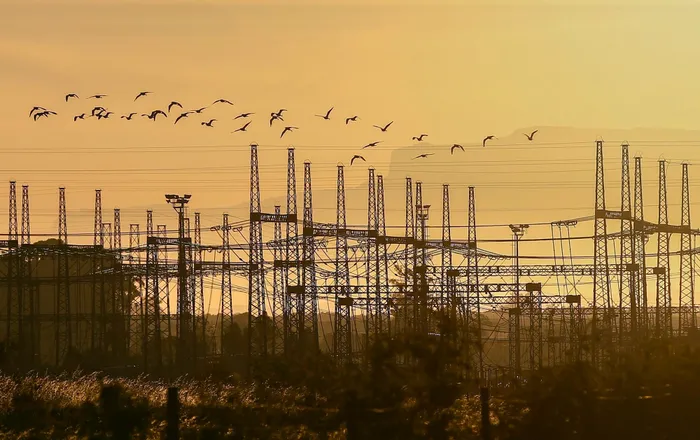Economists view on SA challenges: Government plans to grow economy are inadequate

Nedbank chief economist Nicky Weimar said most of South Africa’s challenges begin with the energy crisis, which leads to dwindling gross fix, image, EPA, NIC BOTHMA.
This was a view of the country’s leading economists who shared their views on South Africa’s current state of the economy and key factors contributing to the foggy economic climate.
Stellenbosch University’s Business School economist Dr Nthabiseng Moleko yesterday said that South Africa had a stable macroeconomic policy framework, but economic growth was still subdued.
Moleko said South Africa’s economic plans, from the Reconstruction and Development Plan (RDP) to the National Development Plan (NDP), had failed to re-industrialise the economy.
She said that the data she had collected showed that South Africa’s growth was driven from the services of the tertiary sector, and not necessarily a growing primary and secondary sector.
“And the main thrust of my argument is, if South Africa is going to have fiscal sustainability and improve our fiscal policy and improve our economic growth outcomes, we've got to look at improving productivity and also our industrial activity, primarily from your primary and secondary sectors,” Moleko said.
“And that has not been the focus of all our economic policy outcomes. So despite the policy, and we have a lot of policies, the outcomes have led to de-industrialisation.”
Moleko was speaking during the renowned Economist of the Year competition webinar hosted by the Bureau of Market Research and the University of South Africa (Unisa).
She added that the outcomes of the country’s economic policies had led to a constrained primary sector, particularly primary agriculture and mining which have been on a downward slide.
“So the economic recovery plan, the economic strategy of 2020, we can look at the NDP from 2013 or 2012, these plans and recovery strategies have not yielded the results we need to see,” she said.
“And my argument has always been productivity, industrialization, and the macro framework that enables that.”
However, Optimum Investment Group economic adviser Dr Roelof Botha attributed a lot of economic mishaps to the administration of former president Jacob Zuma, which was characterised by State capture years.
Botha said the country had a decade of pathetic government, with incompetent appointments at state-owned enterprises during the Zuma years.
“That has been turned around and now we have a president that understands economics,” Botha said.
“So we are turning the ship around from useless policy, or non existent economic policy to one of close cooperation with the private sector. We are moving in the right direction.”
Nedbank chief economist Nicky Weimar said most of South Africa’s challenges begin with the energy crisis, which leads to dwindling gross fixed capital formation.
Weimar said that fixed investment was the key to job creation, and that was simply not possible if the country does not have enough energy.
“So we need to end load shedding, then we need to install enough capacity in the electricity grid, so that there is a decent reserve ratio, and that we actually have some space for fast economic growth,” Weimar said.
“And then obviously, that’s not where it ends. Ultimately we need a competent government. We need to know that the money paid in taxes is spent efficiently and effectively without waste.”
BUSINESS REPORT